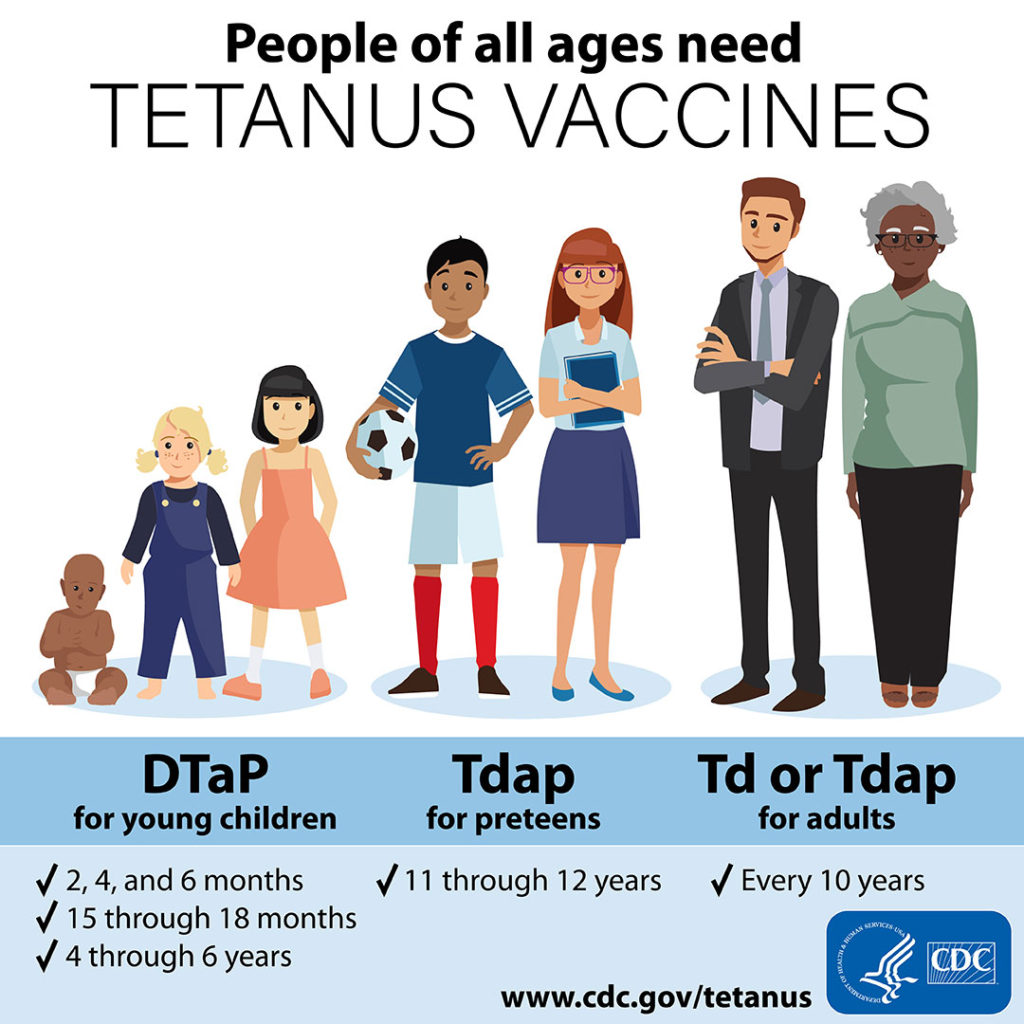Overview of Tetanus
Tetanus is a serious disease caused by a bacterial toxin that affects your nervous system, leading to muscle pain and contractions, particularly around your jaw and neck.it is different from other vaccine-preventable diseases in terms of its infection process, which is not infected from person to person. The bacteria are usually found in soil and dust, then it enters our body through the wounds on our skin. Usually, cases are cuts or puncture wounds caused by contaminated objects. Nearly all cases of tetanus are among people who did not get all the recommended tetanus vaccinations. Tetanus immunization has been introduced to Thailand’s national immunization program for 30 years. Yet, the coverage and seroprevalence of tetanus antibodies in vast parts of the population have not been assessed.
*The number of Tetanus case from the year 2009-2012
https://www.tilasto.com/en/topic/population-and-health/tetanus/tetanus-cases-total/thailand
Infection Process
Tetanus is an infectious disease caused by a bacterium called Clostridium tetani. The bacteria are everywhere in the environment, including soil, dust, and manure.
Several Ways Tetanus Gets Into Your Body
• Wounds contaminated with dirt, poop (feces), or spit (saliva)• Wounds caused by an object puncturing the skin (puncture wounds), like a nail or needle
• Burns
• Crush injuries
• Injuries with dead tissue
• Clean superficial wounds (when only the topmost layer of skin is scraped off)
• Surgical procedures
• Insect bites
• Dental infections
• Compound fractures (a break in the bone where it is exposed)
• Chronic sores and infections
• Intravenous (IV) drug use
• Intramuscular injections (shots given in a muscle)
Exposure to Illness
Most cases occur within 14 days. In general, but sometimes doctors recognize shorter periods of incubation period especially for severe cases. Time from exposure to illness can be between 3 and 21 days. However, it may range from one day to several months, depending on the kind of wound.
Symptoms of Tetanus
Tetanus symptoms usually emerge about 7 to 10 days after the initial infection. One of the most common signs of this infection is the tightening of the jaw muscles. You may also experience spasms and stiffness in various muscles, those in your abdomen, chest, back, and neck. Tetanus infection can lead to serious health problems, including being unable to open the mouth and having trouble swallowing and breathing. Breathing difficulties may result from neck and chest muscle stiffness. In some people, abdominal and limb muscles are also affected. In severe cases, the spine will arch backward as the back muscles become affected. This is more common when children experience a tetanus infection.
Most individuals with tetanus will also have the following symptoms:
• diarrhea
• fever
• headache
• sensitivity to touch
• sore throat
• sweating
• rapid heartbeat
Doctors can diagnose tetanus by examining the patient and looking for certain signs and symptoms mentioned above. there might be no hospital lab tests that can confirm tetanus.
Treatment
Treatment depends on how serious the infection and your symptoms are. Thus, getting a consultation with the doctor immediately is strongly recommended. In the hospital, Tetanus is usually treated with a variety of therapies and medications, such as:
• antibiotics such as penicillin to kill the bacteria in your system (These antibiotics prevent the bacterium from multiplying and producing the neurotoxin that causes muscle spasms and stiffness. Patients who are allergic to penicillin or metronidazole may be given tetracycline instead.)
• tetanus immune globulin (TIG) to neutralize the toxins that the bacteria have created in your body
• muscle relaxers to control muscle spasms
• a tetanus vaccine given along with the treatment
• cleaning the wound to get rid of the source of the bacteria
In some cases, a surgical procedure is required to remove dead or infected tissue. If you have difficulty swallowing and breathing, you may need a breathing tube or ventilator (a machine that moves air in and out of the lungs). Of course, your wound must be thoroughly cleaned to prevent infection. Also, a patient with tetanus requires a high daily calorie intake because of increased muscle activity.
Prevention
Vaccination and good wound care are paramount to prevent tetanus infection. Since people are not capable of acquiring immunity to tetanus, the best way to prevent tetanus is to vaccinate up to date. CDC recommends tetanus vaccines for all infants and children, preteens and adolescents, and adults. Additionally, Medicine can also help prevent tetanus in cases where someone is seriously hurt and doesn’t have protection from tetanus vaccines.
Available Vaccines
According to CDC, four types of vaccines are used to protect against tetanus today, all of which also protect against other diseases:
• Diphtheria, tetanus, and pertussis (DTaP) vaccines
• Tetanus and diphtheria (Td) vaccines
• Tetanus, diphtheria, and pertussis (Tdap) vaccines
*Babies and children younger than 7 years old receive DTaP or DT, while older children and adults receive Tdap and Td.
Available vaccine lists in Thailand and BLEZ CLINIC is listed below:
https://www.thaitravelclinic.com/cost.html
https://blez-clinic.com/immunization/
Please remember that protection from vaccines, as well as a prior infection, does not last a lifetime. It means that if you had tetanus or got the vaccine before, you still need to get the vaccine regularly to keep a high level of protection against this serious disease. CDC recommends tetanus vaccines for people of all ages, with booster shots throughout life. Learn who needs a tetanus vaccine and when.

Although mild side effects have been reported, most people who get a tetanus vaccine do not have any serious problems with it. Mild side effects mean they do not affect daily activities. See the vaccine information statement for each vaccine to learn more about the most common side effects.
